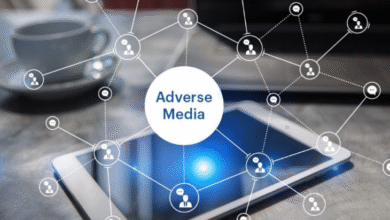Transforming Procurement with AI: How Intelligent Automation Enhances Procure-to-Pay and Supplier Management

Procurement has always been a critical function for enterprises, ensuring smooth operations, cost efficiency, and strong supplier relationships. Yet, the traditional procure-to-pay (P2P) process is often weighed down by manual tasks, fragmented systems, and compliance challenges. Similarly, supplier management requires continuous monitoring, evaluation, and communication, which can be overwhelming for procurement teams.
Today, Artificial Intelligence (AI) is redefining procurement operations by streamlining workflows, improving compliance, and driving smarter decision-making. From automated invoice processing to predictive supplier insights, AI ensures procurement functions are not only efficient but also resilient.
The Role of AI in Procure-to-Pay
The procure-to-pay process covers everything from requisitioning goods to final payment settlement. However, traditional P2P cycles are prone to inefficiencies such as delayed approvals, errors in invoice matching, and compliance gaps. AI addresses these pain points by automating repetitive tasks, reducing cycle times, and ensuring accuracy.
For a detailed overview, check out how AI in procure-to-pay is revolutionizing the end-to-end process—helping organizations achieve faster processing, reduced costs, and improved compliance.
See also: Nyafilmer.gg Home: The Best Platform for Free Movie Streaming
Automating Invoice Validation and Matching
One of the most time-consuming aspects of P2P is invoice validation and three-way matching. AI systems can automatically extract data from invoices, validate it against purchase orders and delivery receipts, and flag discrepancies in real time. This reduces manual effort, prevents overpayments, and accelerates payment cycles.
Enhancing Compliance and Audit Readiness
Compliance with procurement policies and regulations is non-negotiable. AI ensures every transaction adheres to predefined rules by monitoring spend patterns, identifying policy deviations, and generating detailed audit trails. This makes compliance proactive rather than reactive.
Driving Cost Savings through Predictive Analytics
AI analyzes historical procurement data to predict demand, optimize order timing, and negotiate better supplier terms. This predictive intelligence not only reduces procurement costs but also helps companies avoid stockouts or overstocking.
AI in Supplier Management
Managing suppliers goes beyond simple communication—it involves evaluating performance, ensuring contract compliance, mitigating risks, and fostering strong long-term relationships. Manual approaches often lead to fragmented insights and delayed decision-making. AI transforms this process by offering real-time visibility and predictive insights.
Learn more about how AI enhances supplier management, enabling procurement teams to manage supplier relationships more effectively and ensure business continuity.
Supplier Risk Assessment
AI can continuously monitor suppliers across multiple data sources—financial stability, compliance records, delivery performance, and even external news reports. This real-time risk assessment allows companies to identify potential issues early and take corrective measures.
Performance Monitoring and Benchmarking
AI-driven dashboards track supplier KPIs such as delivery times, quality scores, and contract compliance. These insights help procurement teams benchmark suppliers against industry standards and make informed decisions about contract renewals or replacements.
Strengthening Supplier Collaboration
By automating routine interactions, AI frees procurement professionals to focus on strategic supplier collaboration. Intelligent chatbots and communication tools enhance response times, resolve queries faster, and build stronger partnerships with key suppliers.
Benefits of AI in Procurement
The integration of AI into procurement delivers significant advantages across the organization:
- Efficiency Gains: Automating manual tasks reduces cycle times and frees up teams for strategic work.
- Cost Savings: Predictive analytics and optimized procurement strategies drive measurable cost reductions.
- Risk Mitigation: Continuous monitoring of suppliers ensures resilience against disruptions.
- Enhanced Accuracy: AI minimizes errors in invoice processing, approvals, and compliance checks.
- Improved Decision-Making: Data-driven insights enable procurement leaders to make smarter, faster decisions.
Future Outlook: AI as a Strategic Procurement Partner
AI in procurement is not just about automation—it is about strategic enablement. As enterprises face increasing pressure to optimize costs and build resilient supply chains, AI-powered procurement platforms will become essential. Future advancements will likely focus on autonomous procurement, where AI handles routine decisions while humans oversee exceptions and strategy.
Enterprises that embrace AI now will not only reduce inefficiencies but also gain a competitive edge through smarter supplier collaboration, improved compliance, and greater agility in responding to market changes.
Conclusion
Procurement is at the center of enterprise success, but its complexity demands smarter tools. AI is transforming both procure-to-pay processes and supplier management, delivering efficiency, compliance, and resilience at scale. By automating repetitive tasks and providing predictive insights, AI empowers procurement teams to focus on value creation rather than administration.
Organizations that adopt AI-driven procurement solutions are well-positioned to build stronger supplier ecosystems, reduce risks, and achieve sustainable growth in an increasingly competitive business environment.




